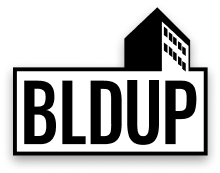In the world of general contractors everyone knows the big guys, their names are seen stamped on major projects across the city. When it comes to towering skyscrapers a handful of firms have the market cornered. But these extra-large projects are often few and far between, while medium and small projects are more plentiful. Right now they are over 50 approved new construction projects under 50,000 square feet in Boston that have yet to start construction. How does a local, small firm find new projects, expand their book of business, and gain brand recognition?
To find small to the mid-sized projects in Boston, you can visit the BPDA website to check approvals however there is no sorting option here for project size so you would have to go through each project, one by one to check total square footage or the number of units. The developer contact information for these projects, really the most important piece of data, is also buried within PDF documents on each project. Reviewing these to find an email or phone number is quite a tedious task.
Outside of Boston, things don’t get any easier. For towns like Quincy or Revere, you would need to review zoning or planning board meeting agendas or minutes to find approvals and project information. This search will lead you to numerous town websites that are often hard to navigate and have a hodgepodge of information in a variety of formats. Here too contact information is difficult to find and searching these sites will take valuable time that in all likelihood your small team does not have.
If you are lucky enough to find a contact or two through your search how can you get a foot in the door with these developers?
Here are 5 tips to get developers to take your call and let you in on the bid!
- Add value: Have a money or time-saving technique that could be used on this particular project? Have great relationships with suppliers that could result in potential savings? With land and construction costs on the rise, developers will be looking for these potential savings. You can also add value by bringing deals to developers by connecting with brokers and finding opportunities on your own. We have even seen some GC's investing in developments with their own money as a way to secure the deal. Get creative and know the market as if you were the developer yourself.
- Know the Market: Familiarize yourself with other projects in the developer’s target market and be prepared with stats on recent completions, projects currently under construction, and upcoming developments. The more data you have on the market, the more the developer will see you as an asset and partner and less as a vendor.
- Talk cost: Figure out the cost per square foot of construction for the area their project is in and try to beat it. We spoke with a developer recently who was getting pricing at $315 sq ft and we brought him a GC who could do it for $225 a sq ft. On a $15million project, that’s a lot of money that can be saved and something most developers aren’t going to turn down.
- Have a strong digital presence: If a developer gets your message and their interest is mildly piqued they are going to google your firm. Having a strong online presence showcasing your work and expertise will help move the needle in your favor. That means having a real website thats up to date and showcases all of your work.
- Develop a financial broker relationship: Find a financial broker like Finance Boston who offers expertise in debt and equity as it relates to developments. Developers are always looking to save money and many of them are using hard money lending (quick loans but higher rates at ~12%). What if you introduced them to a savvy broker that was able to cut that rate in half and do it just as quickly as the hard money lenders (this can be done).
Taking the time to find just one or two new projects, can have a significant impact on your firm’s bottom line, and given today’s uncertain climate it will also be key to focus on making new connections. Utilizing BLDUP’s In the Know tool, contractors can easily pull lists of approved projects within a given size range or unit count, including developer contact information. The marketing aspect of the platform also allows your company to increase your online presence and showcase your past and present projects. Schedule a demo here to see how much time you could save with In The Know.
